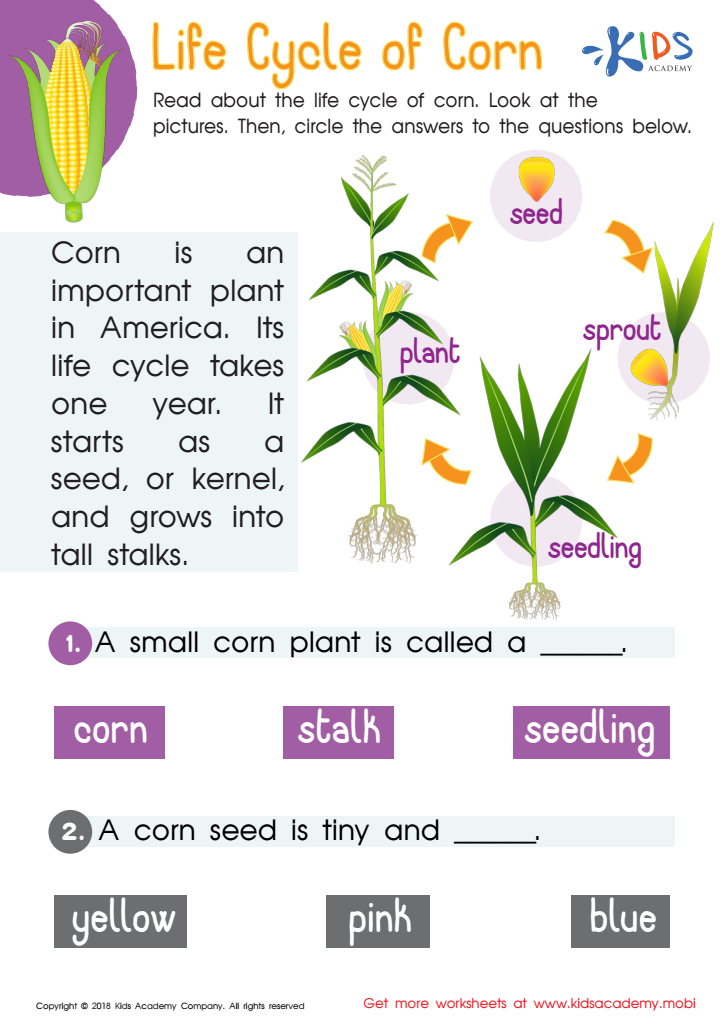Agricultural knowledge Worksheets for Kids
1 filtered results
-
From - To


Life Cycle of Corn Worksheet
Question/Answer
How to test a Grade 2 student’s Agricultural knowledge skills?
To test a Grade 2 student's Agricultural knowledge skills, use simple, age-appropriate questions and activities. For instance, ask them to identify basic farm animals and plants, their uses, and simple growing cycles. Incorporate hands-on activities like planting seeds or recognizing basic garden tools.
How does the mastery of the Agricultural knowledge skill affect a student's performance at an early age?
The mastery of Agricultural knowledge at an early age enhances a student's understanding of the natural world, promotes a sense of responsibility, and encourages healthy eating habits. It improves critical thinking through problem-solving related to food production and environmental conservation.
What are some effective activities to train students’ Agricultural knowledge skill when teaching them about Reading Non-Fiction?
Effective activities include creating annotated reading guides focusing on agricultural texts, hosting group discussions on current agricultural issues highlighted in non-fiction articles, implementing project-based learning where students research and present on specific crops or farming techniques, and organizing field trips to farms or agricultural research centers. Incorporating multimedia resources like documentaries also enhances understanding and engagement.

 Assign to the classroom
Assign to the classroom












